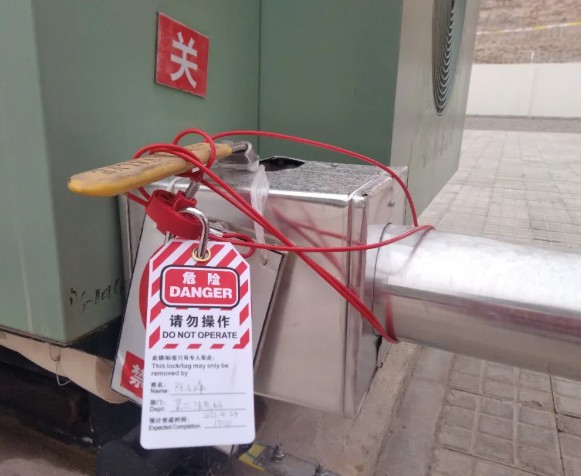Open line. – Energy isolation
Article 1 These provisions are formulated for the purpose of strengthening energy isolation management and preventing personal injury or property loss caused by accidental release of energy.
Article 2 These provisions shall apply to CNPC Guangxi Petrochemical Company (hereinafter referred to as the Company) and its contractors.
Article 3 These regulations regulate the procedures, methods and management requirements of energy isolation before operation.
Article 4 Interpretation of terms
(1) Energy: energy contained in process materials or equipment that may cause personal injury or property loss. Energy in these provisions mainly refers to electrical energy, mechanical energy (mobile equipment, rotating equipment), thermal energy (machinery or equipment, chemical reaction), potential energy (pressure, spring force, gravity), chemical energy (toxicity, corrosiveness, flammability), radiation energy, etc.
(2) isolation: valve parts, electrical switches, energy storage accessories, etc. are set in appropriate positions or with the help of specific facilities so that the equipment cannot operate or energy cannot be released.
(3) Safety lock: safety device used to lock energy isolation facilities. It can be divided into two categories according to its functions:
1. Personal lock: Security lock for personal use only. Territorial area personal lock, red; Contractor maintenance personal lock, blue; Operation leader lock, yellow; Temporary personal lock for external workers, black.
2. Collective lock: a safety lock shared on site and containing a lock box. The collective lock is a copper padlock, which is a group lock that can open multiple locks with one key.
(4) locks: auxiliary facilities to ensure that they can be locked. Such as: lock, valve lock sleeve, chain and so on.
(5) “Danger! “Do not Operate” label: label that indicates who is locked, when and why and is placed on a security lock or isolation point.
(6) Test: verify the effectiveness of system or device isolation.
Article 5 The Safety and Environmental Protection Department shall be responsible for the supervision and management of Lockout tagout and provide professional technical support.
Article 6 Production Technology Department and Motor Equipment Department shall be responsible for providing professional technical support for the implementation of Lockout Tagout.
Article 7 Each local unit shall be responsible for the implementation of this system and ensure that energy isolation is in place.

Post time: Nov-12-2021






